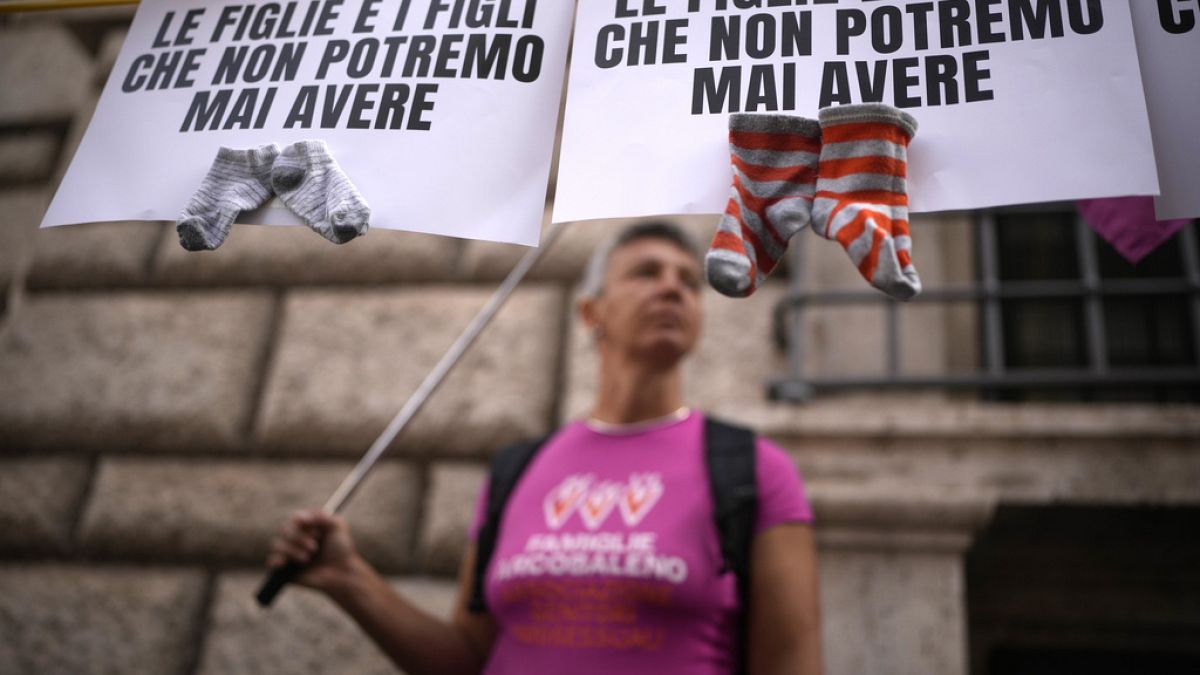Italy recently passed a new law that criminalizes individuals who seek surrogacy abroad, with penalties including jail time and hefty fines. The bill was initially presented by a member of parliament from the Brothers of Italy party and was supported by the party chief and Prime Minister. The law extends a surrogacy ban that has been in place since 2004, with penalties of up to two years in jail and €1 million in fines for those seeking surrogacy in countries where the practice is legal. The new law aims to protect women’s dignity, surrogates abroad, and the relationship between biological parents and their children.
Critics of the new law argue that it unfairly targets same-sex parents and lacks clarity in implementation. The new law prohibits anyone who carries out, organizes, or advertises the commercialization of gametes, embryos, or surrogacy, with penalties ranging from three months to two years in prison and fines starting at €600,000. The conservative ruling coalition believes that motherhood is unique and cannot be surrogated, viewing surrogacy as the exploitation of women. Despite opposition from various political groups, the law was passed with the aim of uprooting the phenomenon of surrogacy tourism.
One of the major downsides of the new law is the lack of clarity in its implementation. Questions arise regarding how evidence necessary for conviction and sentencing will be collected, as well as the possibility of opening proceedings retroactively. The law also raises concerns about how the state will regulate birth certificates issued abroad, especially considering the delays in processing births of its citizens outside of the country. Additionally, the legislation disproportionately impacts same-sex parents in a country where same-sex marriage is also banned, leading to protests and opposition from LGBTQ+ activists and lawmakers.
The new law’s proponents argue that it is necessary to protect the dignity of women, surrogates abroad, and the relationship between biological parents and their children. The conservative ruling coalition believes that surrogacy goes against the natural bond between a mother and child, reducing women to mere incubators. Despite concerns from opposition parties about the law’s implications and its alignment with domestic and international laws, the legislation was passed to prevent surrogacy tourism and uphold the sanctity of motherhood within Italian society. Critics argue that the law unfairly targets same-sex parents and lacks clarity in its implementation, leading to uncertainties about how it will be enforced and its effects on affected individuals.
The new law’s impact extends beyond surrogacy, raising concerns about its effects on same-sex parents and the implementation of birth certificates issued abroad. The legislation criminalizes individuals seeking surrogacy abroad, with penalties including jail time and fines. Critics argue that the law unfairly targets same-sex parents and lacks clarity in implementation. Despite opposition from various political groups, the law was passed to protect women’s dignity, surrogates abroad, and the relationship between biological parents and their children. The law’s ambiguous points raise questions about its enforcement and its potential effects on individuals seeking surrogacy abroad, pointing to challenges in regulating surrogacy and its impact on various aspects of Italian society.











